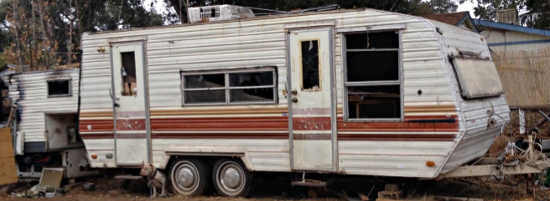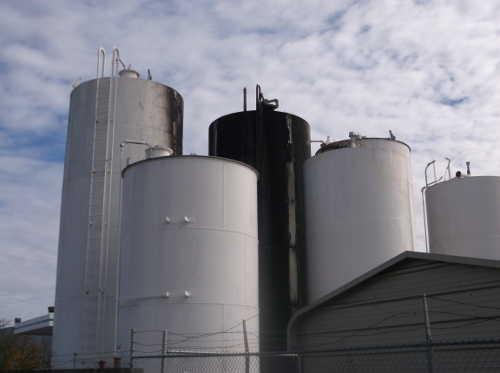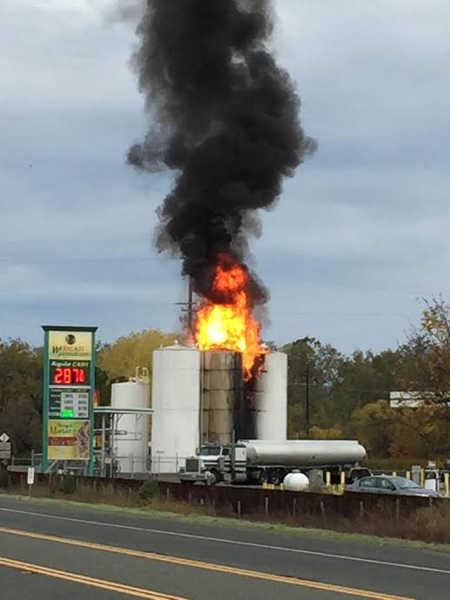- Lake County News reports
- Posted On
California Treasurer’s Office releases report on Bay Delta Conservation Plan affordability, financing
The California State Treasurer’s Office has released a study of affordability for the water facility construction proposed in the public review draft Bay Delta Conservation Plan, or BDCP.
“The Bay Delta Conveyance Facility: Affordability and Financing Considerations,” is an independent study requested by the California Natural Resources Agency and commissioned by the California Debt and Investment Advisory Commission (CDIAC), which is chaired by State Treasurer Bill Lockyer.
The study finds that the cost of the Delta conveyance facility is within the range of urban and agricultural users’ capacity to pay.
Officials said the BDCP would modernize California’s existing water supply system – the State Water Project (SWP) and Central Valley Project (CVP) located in the Sacramento-San Joaquin Delta – and protect water users across the state from water supply disruption due to regulatory restrictions and seismic risks.
The state preferred alternative identified in draft environmental documents calls for the construction of three new intakes in the northern Delta on the Sacramento River and twin tunnels of a combined 9,000 cubic-feet-per-second capacity to protect and transport supply to the existing aqueduct systems in the southern Delta. The participating public water agencies would fund the water system improvements.
However, the plan has come under heavy criticism from officials including Congressman John Garamendi, who represents a portion of Lake County in the US House of Representatives.
Garamendi has called the plan a “boondoggle” and has introduced legislation to block it.
Water from Clear Lake travels to the Bay-Delta through waterways including Cache Creek and the Yolo Bypass.
The treasurer’s report is one more step in the ongoing BDCP development. It estimates the annual debt service cost for SWP and CVP water contractors and identifies steps that will need to be undertaken in order to successfully finance the project over a 50-year period. The report also identifies common risks inherent in financing large infrastructure projects.
The report also illustrates that the cost of the Delta conveyance facility is within the range of urban and agricultural users’ capacity to pay.
The report provides illustrative cost ranges for Metropolitan Water District, Santa Clara Valley Water District, Westlands Water District, and Kern Water District, which have been major funders of the BDCP planning effort. The independent analysis was funded solely by CDIAC.
Examining peak costs over the lifetime of debt financing, the report estimates that the peak annual debt service costs, defined as the average annual costs for the highest 10 years, would be $1.58 billion per year (base case), $1.08 billion per year (best case), and $2.50 billion per year (worst case), all in year-of-expenditure dollars.
These debts would be financed via revenue bonds and repaid by revenues from the SWP and CVP contractors and their ratepayers, not California’s taxpayers.
The treasurer’s report identifies certain commitments that would need to be undertaken by SWP and CVP contractors to enable bonds to be sold for the project.
More than 60 percent of the estimated financial responsibility of SWP contractors’ share of the bonds would be derived from contractors rated Aa3 or AA-higher by Moody’s Investors Service and Standard & Poor’s.
California Department of Water Resources (DWR) and SWP contractors currently use “take or pay” contracts to finance the SWP. Among other issues discussed, the report indicates that BDCP bond contracts for CVP contractors would need to adopt this “take or pay” structure to finance the Delta conveyance. This requires annual fixed payments even when water deliveries fluctuate year to year due to changes in hydrologic conditions.
This approach, along with other requirements, has resulted in very strong credit ratings of AAA/Aa1 on DWR’s bonds and is expected to strengthen the credit ratings for BDCP-related bonds.
The report identifies potential risks to bond financing, such as construction cost overruns and delays, regulatory uncertainty, and unforeseen changes due to climate change. It also cites studies on so-called “megaprojects,” and their potential for cost overruns.
According to the report, bridge and tunnel projects experience cost overruns of 34 percent on average. Currently the BDCP construction budget has a contingency of 36 percent to account for this uncertainty.
To read a copy of the report, visit http://www.treasurer.ca.gov or http://www.baydeltaconservationplan.com .
In related news, the California Department of Water Resources announced that next month it will begin negotiations with SWP contractors on proposed amendments that would modify SWP water supply contracts.
DWR Director Mark Cowin said the objective of the negotiations is to develop terms and conditions for proposed amendments to DWR’s water supply contracts with the 29 public agencies that purchase SWP water for distribution to their customers.
The proposed amendments would define the rights and obligations of DWR and the contractors who would benefit from the BDCP, should the BDCP be implemented.
Cowin stressed that the negotiations are not a forum for making decisions about approving the BDCP. “These negotiations are entirely separate from other BDCP planning activities and the ongoing BDCP evaluation process,” he said.
DWR will open the negotiations to the public to observe and provide comments to DWR at the end of each negotiating session.
Members of the public also may submit written comments within seven calendar days following the negotiating sessions.
The first session will be from 10 a.m. to 3 p.m. Wednesday, Dec. 10, in Room 1131 of the California Natural Resources Building, 1416 Ninth Street, Sacramento.
Seating is limited, but the public can listen to the negotiations by calling 1-719-359-9722, passcode 138000#. Public parking will be available in the parking garage at 10th and O streets.
Cowin said the first session will focus primarily on ground rules and other negotiation-related processes and will not address substantive amendment issues. As such, it may adjourn early if the agenda items have been addressed or by mutual agreement of DWR and the SWP Contractors.




















